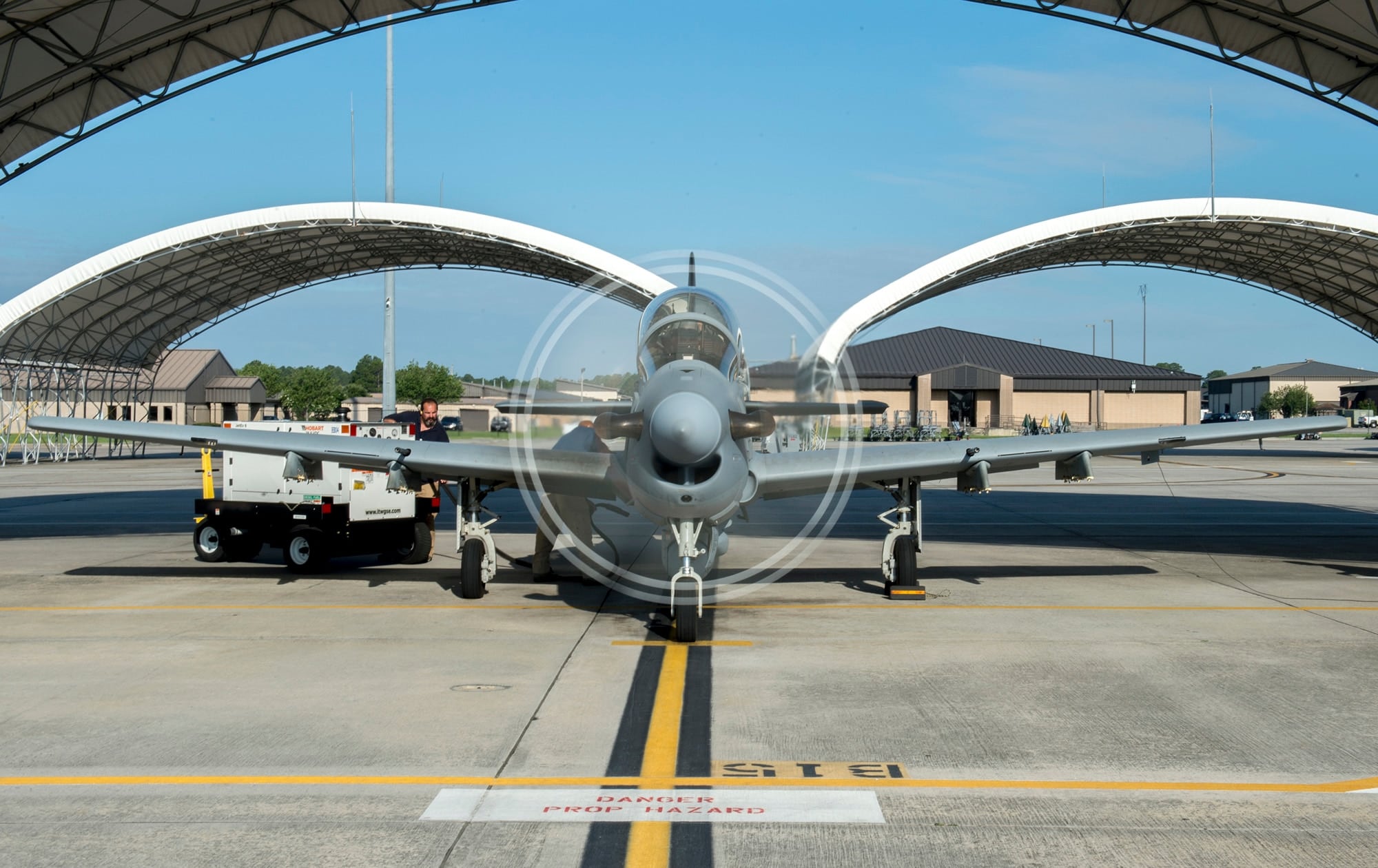WASHINGTON — U.S. President Donald Trump and Nigerian President Muhammadu Buhari on Monday sought to trumpet last year’s $600 million deal for military aircraft previously blocked by the Obama administration over human rights concerns.
But Trump tripped up at their Rose Garden news conference, following the lead of a foreign reporter’s question about the turboprop A-29 Super Tucano light attack aircraft at the heart of the deal, repeatedly calling them “helicopters.”
“We make the best military equipment in the world, and our friends can now buy that equipment,” Trump said. This administration has championed a more transactional foreign policy, and Trump was in full dealmaker-in-chief mode.

Ironically, the Nigerian government did take delivery of foreign-made military helicopters on Monday, according to a Nigerian Air Force release: Two Mi-35M helicopter gunships from America’s strategic competitor, Russia.
“We love helicopters. He loves them more than I do,” Trump said of Buhari, who was standing beside him at a separate podium. “He likes buying helicopters, and they’re buying a lot of helicopters.”
The reporter, saying Nigeria was in “dire need” of the Super Tucano to “address the problems back home,” asked Trump whether he would “be kind enough” to release at least two by 2020.
“Real soon,” Trump told her. “Part of the problem is you weren’t allowed to buy helicopters in our country and now you are. I worked that out so that now you can buy the helicopters that you want.
“They weren’t allowed to buy the helicopters for various reasons, which frankly weren’t good reasons. Now they get them, and they get them very quickly, and they are the best helicopters in the world,” Trump said.
He touted the deal as the first-ever sale of American military equipment to Nigeria, calling the country “a valued partner and a good friend.”
Buhari earlier on at the news conference thanked the U.S. for the A-29s. He left unspoken that President Barack Obama blocked the deal amid concerns from lawmakers typified by a Nigerian Air Force attack on a displaced persons’ camp in 2017 that killed more than 100 civilians.
RELATED

The U.S. State Department in August publicly noticed the $593 million sale, meant to further the West African nation’s campaign against the militant group Boko Haram and regional branch of the Islamic State group.
Though Nigeria has Africa’s second-largest economy, it’s unclear how many of the aircraft it will be able to afford, according to a congressional aide, who said of Trump’s news conference gaffe: “It looked like a garble.”
None of the Embraer and Sierra Nevada Corp. A-29s have been delivered as of Monday, and it will be up to the U.S. Air Force to finalize the delivery schedule.
A U.S. State Department official on Monday touted the Super Tucano’s value for improved targeting capabilities and lessened risk of collateral damage and civilian casualties.
“We have direct and open communication with the Government of Nigeria regarding the core responsibilities of governments ― that their security forces to be accountable for protecting civilians and respecting human rights,” the official said.
“Decisions to proceed with other training, equipment, and defense sales which may be requested by the Nigerian Government will be contingent on its progress on accountability, its willingness to lead in combatting regional threats to peace and security, and its responsible use of U.S. origin equipment,” the official said.
The Nigerian Air Force put out a public statement Monday saying its chief of the air staff took possession of the Russian-made helicopters at its Makurdi air base. The sales date back to 2015, according to the release.
Sarah Margon, the Washington director of Human Rights Watch, said the organization remains concerned with the Nigerian government’s lax approach to abuses against civilians by security forces fighting Boko Haram.
Margon suggested the U.S. government leverage Nigeria’s desire for American-made arms for progress on human rights issues. “Nothing meaningful has been taken up by President Buhari to address the systemic pattern of abuse,” she said.
Joe Gould was the senior Pentagon reporter for Defense News, covering the intersection of national security policy, politics and the defense industry. He had previously served as Congress reporter.








